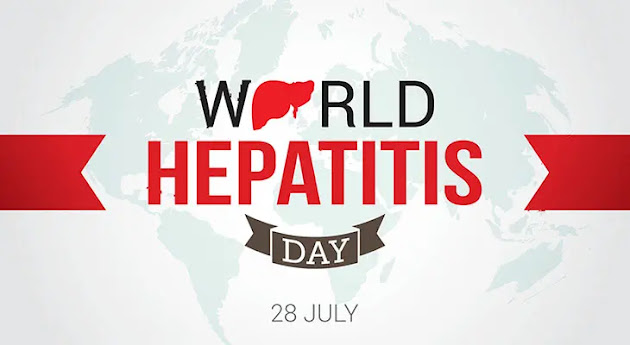World Hepatitis Day: Raising Awareness and Eliminating the Silent Killer
Every year, on July 28th, the world observes World Hepatitis Day to spread awareness about hepatitis, a group of viral infections that affect millions of people worldwide. This day serves as a vital platform to educate individuals, healthcare professionals, and policymakers about the prevention, diagnosis, and treatment of hepatitis. In this blog, we will delve into the significance of World Hepatitis Day, the impact of hepatitis on global health, and the steps being taken to eliminate this silent killer.
Understanding Hepatitis:
Hepatitis is an inflammation of the liver caused by various viral strains, including hepatitis A, B, C, D, and E. Each type of hepatitis differs in its transmission routes, severity, and long-term implications. Hepatitis B and C are the most concerning as they can lead to chronic infections, cirrhosis, liver cancer, and even death if left untreated.
Global Impact of Hepatitis:
Hepatitis poses a significant global health burden, affecting around 325 million people worldwide. Shockingly, more than 1.4 million people die from hepatitis-related complications each year, surpassing the combined mortality of other major infectious diseases such as HIV/AIDS, tuberculosis, and malaria. Despite its prevalence and severity, hepatitis often remains undiagnosed and untreated, earning it the nickname "the silent killer."
Risk Factors and Transmission:
The risk factors for hepatitis vary depending on the type of virus. Hepatitis A and E primarily spread through contaminated food and water, while hepatitis B, C, and D can be transmitted through blood, unprotected sexual contact, and from mother to child during childbirth. Injecting drug use and unsafe medical practices are also significant contributors to hepatitis B and C transmission.
Prevention and Awareness:
World Hepatitis Day plays a crucial role in raising awareness about preventive measures. Vaccinations are available for hepatitis A and B, providing long-term protection and preventing transmission. Ensuring safe blood and medical procedures, practicing safe sex, and maintaining proper hygiene are essential in reducing the risk of hepatitis infection.
Diagnosis and Treatment:
Early diagnosis and treatment are pivotal in managing hepatitis infections and preventing severe complications. Regular screenings, especially for high-risk individuals, can aid in identifying the infection at an early stage. Antiviral medications are available for treating chronic hepatitis B and C, significantly improving the prognosis and preventing liver-related complications.
The Road to Elimination:
In 2016, the World Health Organization (WHO) adopted the Global Health Sector Strategy (GHSS) on Viral Hepatitis, aiming to eliminate viral hepatitis as a public health threat by 2030. The strategy focuses on increasing awareness, expanding access to testing and treatment, and enhancing preventive measures. Countries around the world are actively working towards implementing the GHSS, but concerted efforts from governments, healthcare providers, and individuals are vital to achieve this ambitious goal.
How Can You Help?
As individuals, there are several ways we can contribute to the fight against hepatitis:
Get vaccinated: Ensure you and your loved ones are up-to-date with hepatitis vaccinations.
Get tested: If you believe you are at risk or have been exposed to hepatitis, seek testing to ensure early detection.
Educate others: Spread the word about hepatitis, its transmission routes, and preventive measures within your community.
Support organizations: Contribute to or volunteer with organizations working to eliminate hepatitis and support affected individuals.
Challenges and Solutions:
The road to eliminating hepatitis is not without its challenges. Some of the key obstacles include limited access to healthcare in certain regions, stigma associated with hepatitis, high treatment costs, and lack of awareness among at-risk populations. However, these challenges can be overcome with collective efforts and the following solutions:
Universal Healthcare Access: Governments must prioritize the establishment of robust healthcare systems that provide affordable and accessible testing, treatment, and prevention services for all, especially in underserved areas.
Awareness and Education: Educational campaigns and community engagement initiatives play a vital role in raising awareness about hepatitis, its modes of transmission, and the importance of regular testing and vaccination.
Reducing Stigma: Reducing the stigma associated with hepatitis is crucial in encouraging people to come forward for testing and treatment without fear of discrimination.
Affordable Treatment: Governments and healthcare organizations should work together to negotiate affordable prices for antiviral medications, making them accessible to all those in need.
Collaboration and Partnerships: Collaboration between governments, non-governmental organizations, healthcare providers, and the private sector is essential to pool resources, share best practices, and drive progress in eliminating hepatitis.
The Role of Technology in Hepatitis Elimination:
Technology can play a transformative role in the fight against hepatitis. Advancements in telemedicine and digital health platforms can expand access to medical consultations and monitoring for individuals in remote or underserved areas. Additionally, mobile applications and online resources can be utilized to disseminate accurate information about hepatitis and promote healthy behaviors.
Supporting World Hepatitis Day:
As individuals, we can actively participate in supporting World Hepatitis Day and the larger goal of hepatitis elimination:
Engage on Social Media: Use social media platforms to share informative posts, infographics, and personal stories related to hepatitis. Utilize relevant hashtags like #WorldHepatitisDay and #HepatitisElimination.
Attend Local Events: Many communities organize events, seminars, and health camps on World Hepatitis Day. Participate in these activities to learn more and show your support.
Advocate for Policy Changes: Write to your local representatives, urging them to support policies that promote hepatitis awareness, prevention, and treatment.
Organize Awareness Programs: Arrange educational sessions and workshops in your community, workplace, or educational institutions to increase awareness about hepatitis.
Conclusion:
World Hepatitis Day serves as a powerful reminder that hepatitis is a global health challenge that requires urgent attention. By raising awareness, promoting preventive measures, and supporting efforts to improve testing and treatment, we can collectively work towards eliminating this silent killer and creating a healthier world for all. Let us stand united on World Hepatitis Day and beyond, for a future free from the burden of hepatitis.
Visit More:- https://www.achinhimanshujha-mylifeonweb.com/2023/07/global-tiger-day-2023.html




Comments